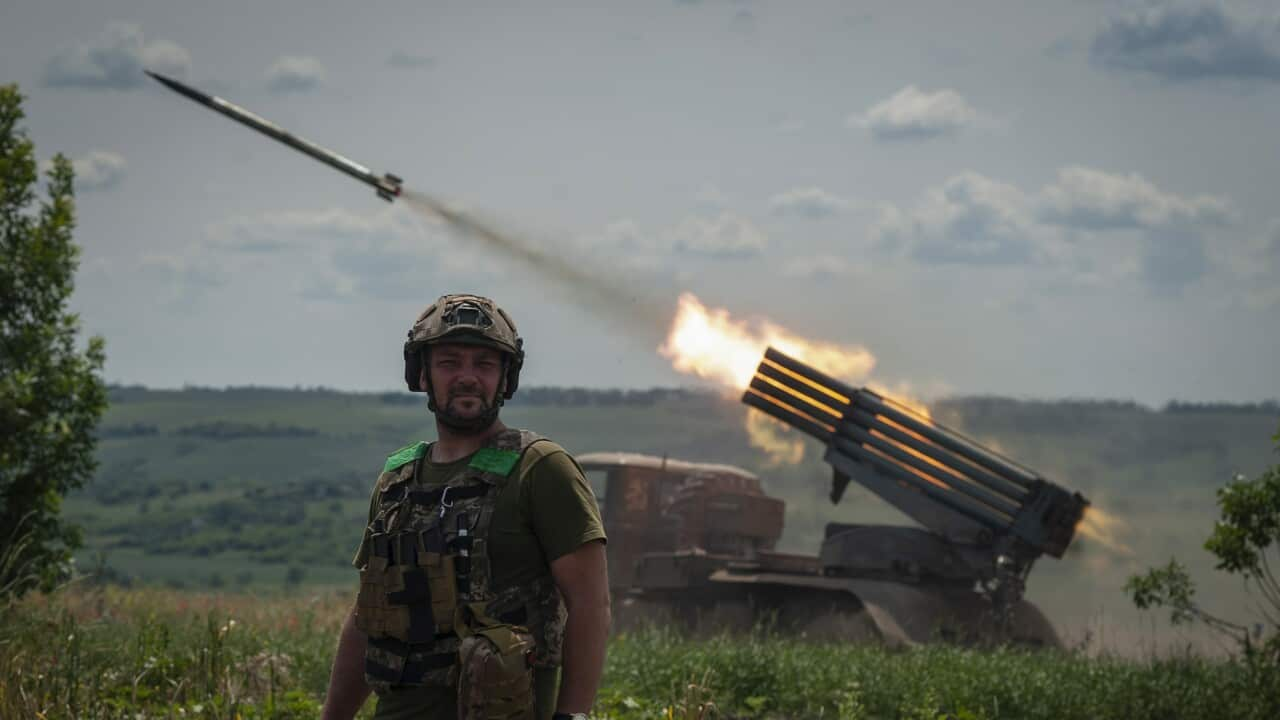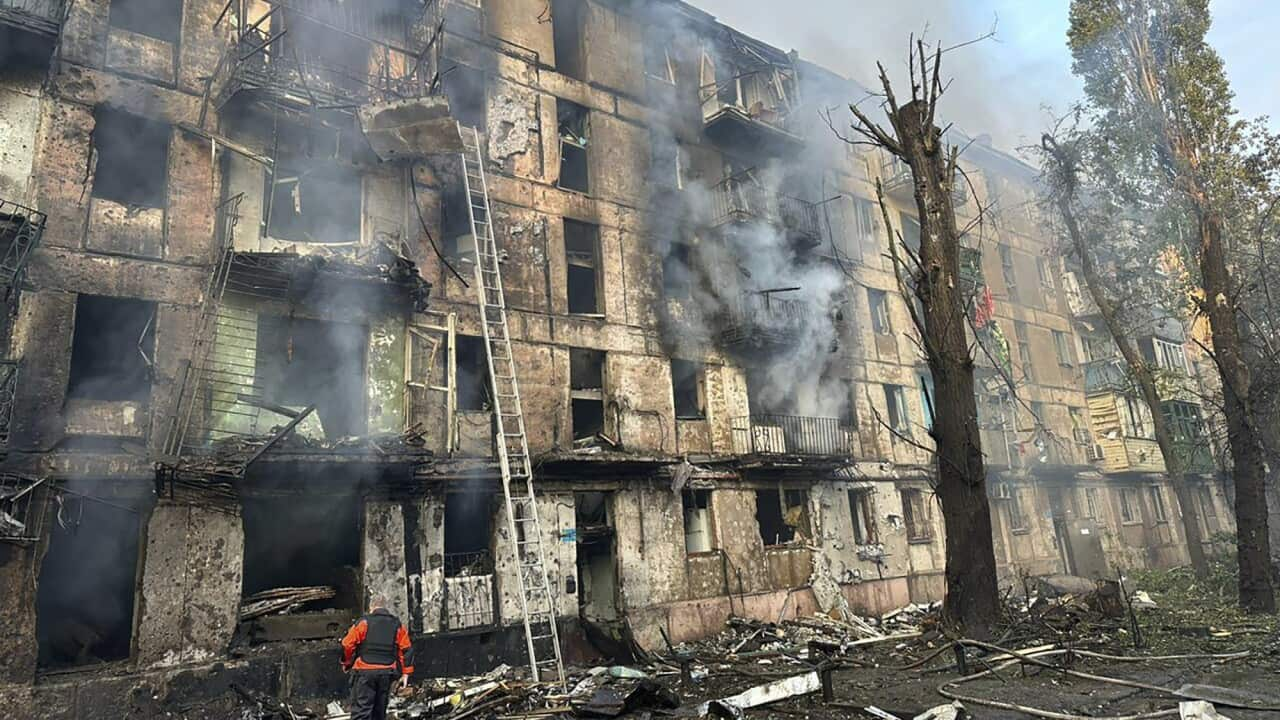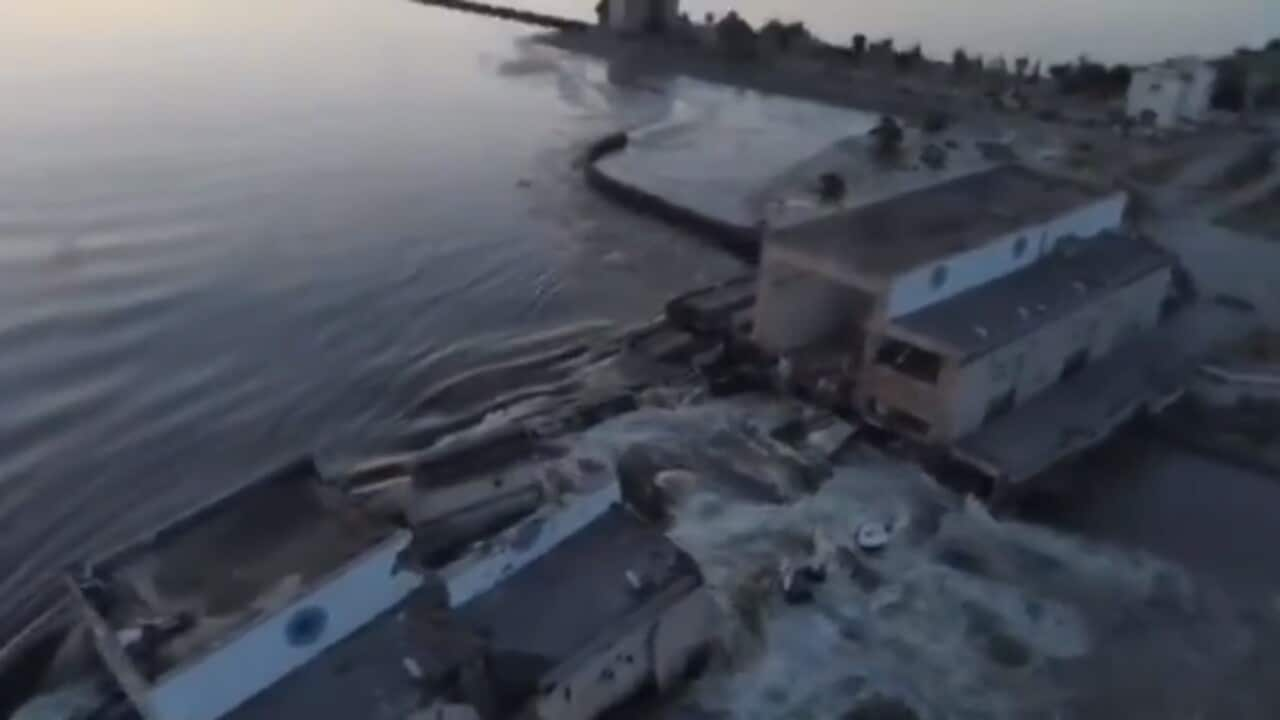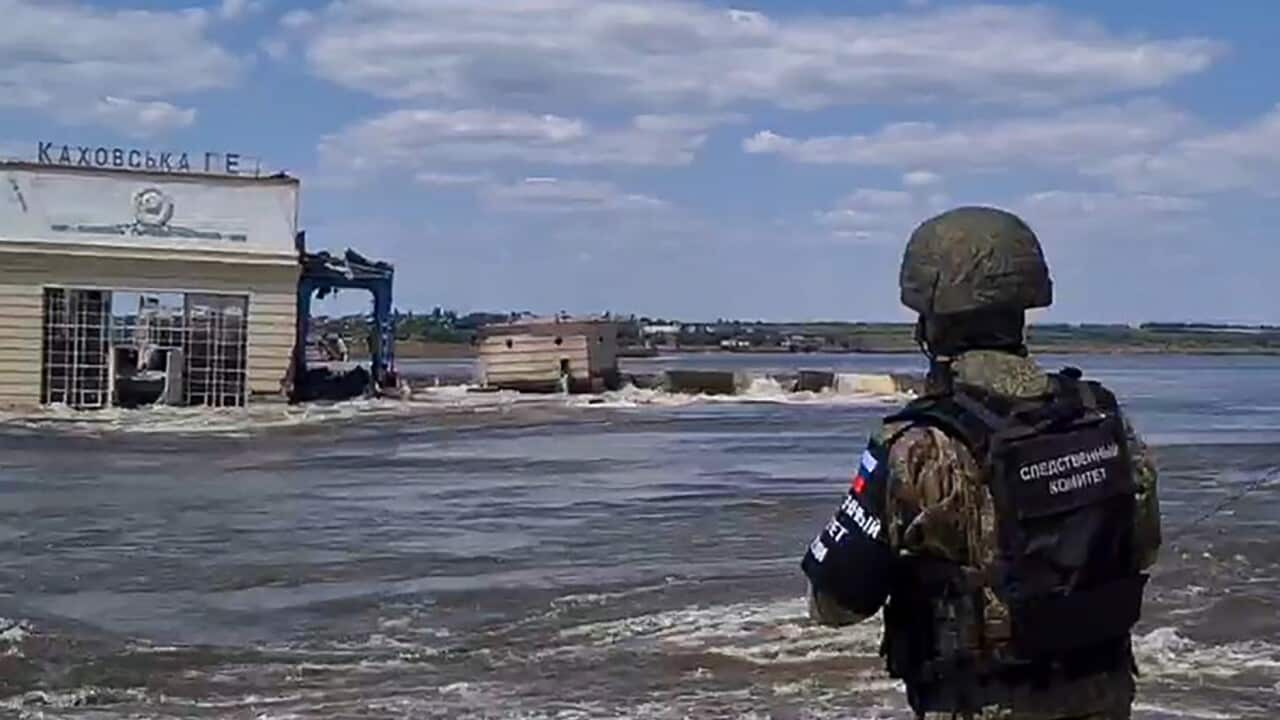Key Points
- Ukraine has hit a critical bridge in blow to Russian supply route.
- The Chonhar bridge is one of just a handful of access roads to Crimea.
- "A very serious response is coming very soon," Russia has warned.
Ukrainian missiles have struck one of the few bridges linking the Crimea Peninsula with the Ukrainian mainland, cutting one of the main supply routes for Russian occupation forces in southern Ukraine as Kyiv pushes to drive them out.
Vladimir Saldo, head of the Russian-installed administration in occupied parts of Ukraine's Kherson province, released a video of himself on the Chonhar road bridge, where craters had been blasted through the asphalt on Thursday.
Earlier, President Volodymyr Zelenskyy was quoted as saying progress in Ukraine's counteroffensive against Russian forces was "slower than desired", but that Kyiv would not be pressured into speeding it up.
"Some people believe this is a Hollywood movie and expect results now," Britain's BBC quoted him as saying in an interview.
"It's not. What's at stake is people's lives."
His adversary, Russian President Vladimir Putin, said Moscow had observed a "lull" in Ukraine's counteroffensive, which began early this month.
Although Ukraine still had some offensive potential, Kyiv understood it had "no chance," Mr Putin said in televised remarks.
"Another meaningless act perpetrated by the Kyiv regime on orders from London. It solves nothing as far as the special military operation is concerned," he said on Thursday, vowing to repair the bridge and restore traffic.
He threatened to retaliate by targeting a bridge linking neighbouring Moldova to NATO-member Romania: "A very serious response is coming very soon."
The Chonhar bridge hit overnight is one of just a handful of access roads to Crimea, which is linked to the Ukrainian mainland by a narrow isthmus.
Alternative routes require hours-long detours over roads in poor condition.
The strike was "a blow to the military logistics of the occupiers," said Yuriy Sobolevsky, a Ukrainian official on the governing body for the Kherson region.
"The psychological impact on the occupiers and the occupying power is even more important. There is no place on the territory of Kherson region where they can feel safe," he said.
Despite conceding slow progress, Mr Zelenskyy said in a separate video address that Ukraine's troops were advancing on the southern front and holding defence lines in the east, long the focus of Russia's almost 16-month-old campaign.
"In the Kupiansk sector, whatever the Russian terrorists might be planning, we are destroying the enemy," Mr Zelenskyy said.
"In the south, we are moving forward ... In the east, we are holding our defences."
Ukraine says it has reclaimed eight villages in its long-awaited counter-offensive, its first substantial gains on the battlefield for seven months.
But Ukrainian forces have yet to push to the main defensive lines that Russia has had months to prepare. Moscow says it has been resisting the Ukrainian advances since early June.
Ukraine's armed forces general staff noted enemy offensive action in the Lyman sector in the east, where officials say Russian forces have become more active.
The BBC quoted Mr Zelenskyy as saying the military push was difficult because 200,000 square kilometres of Ukrainian territory had been mined by Russian forces.
After a flurry of early gains, Kyiv has claimed to have captured only one additional village in the past week, the hamlet of Pyatikhatky.
Both Moscow and Kyiv have stepped up longer-range attacks with missiles and drones in preparation for fighting at the front.
Russia said on Wednesday it shot down drones that had reached the region surrounding Moscow. Kyiv never comments on reports of attacks inside Russia.
Mr Zelenskyy's interview with Britain's public broadcaster was timed to coincide with a conference in London where allies were due to pledge billions of dollars in economic and reconstruction aid.
Washington offered $US1.3 billion ($1.9 billion). Ukraine's Prime Minister Denys Shmyhal said Kyiv was hoping for almost $US7 billion ($10 billion) from the event.
The West has already given Ukraine tens of billions of dollars worth of military equipment, including hundreds of tanks and armoured vehicles that form the core of the force it is set to unleash in its counteroffensive.




